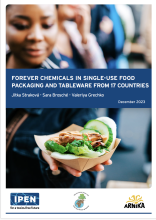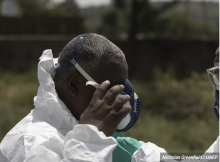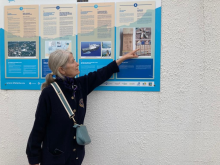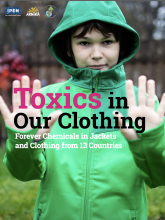Toxic chemicals linked to cancer, infertility, endocrine disruption, and other serious health conditions can leach from packaging to food, posing threats to consumers globally
A study released today by IPEN and 18 IPEN member groups found toxic per- and polyfluoroalkyl substances (PFAS) chemicals, including globally banned substances, in single-use, paper, cardboard, and plant-based molded fiber food containers and tableware purchased from seventeen countries across Asia, Africa, Europe, North America and Latin America and the Caribbean. PFAS chemicals have been linked to cancer, infertility, and endocrine disruption. Prior studies have shown that PFAS in food packaging can leach into food and higher levels of PFAS have been found in blood testing of people who regularly eat types of foods that are typically sold in PFAS-containing packaging.
PFAS, called “Forever Chemicals”due to their extreme persistence in the environment, are widely used in food packagingand single-use tableware to confer grease-resistance. But the study found some packagingmade without PFAS, demonstrating that alternatives to the toxic substances are available. The findings also show that leading global food companies, including McDonald’s, KFC, Burger King, Subway, Starbucks, Dunkin’ Donuts, and Jolly Time sell food in PFAS-free packaging in some countries





